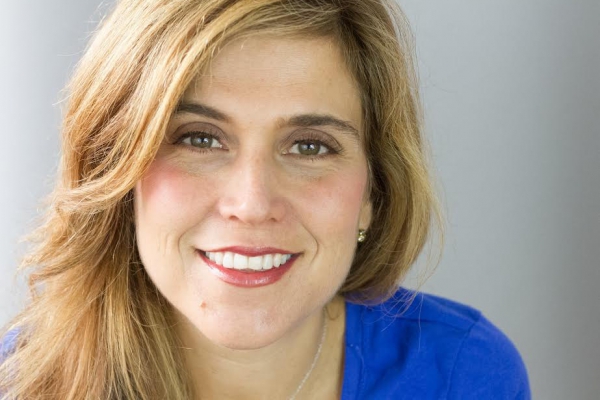#SpeakUp: Alexandria Beech

(Photo credit Jody Christopherson. This interview series features Shaun B. Fauntleroy in conversation with the artists of #SpeakUp. Learn more here, RSVP here, and tell the world you’re coming here.)
Why did you get involved with #StandUp? I like the artists and theater involved, and it’s an important topic in a city with so many cultures that need to negotiate daily co-existence. Street harassment lends itself to drama because it covers the full scope of comedy, terror and tragedy.
What do you want people to take away from #StandUp? I want the audience to imagine that catcalling is an exchange between two or more very real people; the catcaller is perhaps from a country or an origin where there’s disempowerment, loss, a problematic dynamic with between men and women. The woman is an entire universe, vulnerable, perhaps a trauma survivor, alone, exposed. The notion of exposure really interested me in the writing of this. Street harassment is exposure, and yet it’s enforced invisibility.
In the course of writing the piece, did anything surprise you? What surprised me most was hearing from and needing to write about the catcaller, and also how my intimate history informs my exchanges with strangers. I come from a culture of catcallers. It’s a rite of passage from boyhood to manhood to learn how to do it and to do it well. Some older people say that it was once an art. And some women defend it as a way of receiving compliments. It interested me to see how the practice of it in my family has affected me.
What changes in our society do you think need to happen in order for street/gender-based harassment to disappear? I think women need the courage and agency to address the catcaller. Maybe it’s my age but I address my catcallers. Since many speak Spanish, I speak to them directly in Spanish, often scolding them for presenting Latin men in such a negative light, especially at a time when Latins and Latinos are struggling for respect in this country. I once asked a catcaller for directions as he whispered to me; breaking his frequency had mind-shattering effects. He lost his power and cowed. So it’s important to remember that only you can take your power back from a bullying moment. You can go from being the oppressed to doing a little oppressing. PS. The construction workers I’ve scolded in my neighborhood now stay quiet when I walk by.
Favorite three songs? Hallelujah, Imagine, Say Something
Maria Alexandria Beech – Productions: BREAKING WALLS (Cherry Lane Theater), LITTLE MONSTERS (Primary Stages and Brandeis Theater Company), her translation of Eduardo Machado’s THE COOK (Stages Theater), WHAT ARE YOU DOING HERE (“outstanding script” award at Planet Connections Theater Festivity). Festivals: INFINITY POND (2014 Perry-Mansfield New Works with Primary Stages and Palm Beach Theater Festival with Theater Masters), GOOD FRIENDS (2014 New American Voices Festival and Crossing Borders Festival). Her musical CLASS, with Karl Michael Johnson (Hope Summer Repertory Theater). Alex earned two MFA’s (NYU and Columbia), and is an alum of The Dorothy Strelsin New American Writers Group at Primary Stages and Hispanic Playwrights Lab at Intar. Her translation of Barbara Colio’s ROPES will be produced at Two River Theatre in the spring of 2016.




Recent Comments